When did you first notice you were different from the other kids?
Throughout middle school, I would often notice that I’d be struggling on assignments more than other students. For example, I would often need to have directions repeated to me for assignments. I would also struggle with coordination and organization. I would also forget things more frequently.
What steps, if any, did your parents take to improve your life and education?
I was given speech and occupational therapy at a young age which has benefited me greatly. I also received an individualized education plan (IEP) throughout my education which has allowed me extra time to process assignments. My parents have always supported me and reminded me that most things are possible with a little extra effort, and when they aren’t, that was ok.
Giving one’s best is always more important than being the best. I have always appreciated their patience with me as I would often forget things. When they couldn’t be there to remind me of things, they gave me tools and taught me practices to help keep on top of things. For example, they would buy me planners to write things down and showed me how to use the calendars and reminders on my phone.
Which steps to improve your life and education worked?
Writing things down fixed a lot of problems. Although I find writing can be taxing due to fine motor issues, that’s when technology has helped. Having the ability to save things on my phone and for it to give alerts and reminders has been invaluable. Also, finding my passion for acting has helped tremendously. Inspiration to succeed has motivated me way more than anything else ever has. I have found learning and retaining large amounts of lines, show schedules and other such details have come much easier when there is an innate sense of passion involved. I love acting so much and have such a deep sense of connection to it, it’s as if my disability disappears while I am doing it.
What steps do you take every day to moderate your condition and performance in the world?
I always ask teachers questions about assignments, even if they get frustrated with me for doing so. I also always try not to procrastinate, getting all of my assignments done right away has helped prevent me forgetting about them.
Do you believe that either the condition or the work to moderate it has offered you special gifts or insight?
While I do believe Dyspraxia has limited my life experiences in many ways, I believe when it comes to the thing I love to do most, acting, it has given me an edge that most actors don’t have. I often don’t see or understand a line of dialogue as maybe a neurotypical person might automatically read it to mean. Because of this I often ask directors many questions not only about my own lines but about my colleagues’ lines as well. I often want to know from the writer or director what each person in the entire show is feeling and what the meaning behind what they are saying or doing is. I’ve been told that I bring a depth of commitment and character to my roles rarely seen in actors my age.
Whatʼs one thing you wish those without Dyspraxia could understand about us?
I wish that others would understand how those with Dyspraxia may require directions or an explanation a number of times. It does not mean we are not listening, and it will certainly not detract from our work. We hate feeling like an inconvenience or an irritation, so any efforts to not make someone with Dyspraxia feel that way are greatly appreciated.
When it comes to peers, this question becomes more complicated. It can be awkward when I don’t grasp abstract concepts or even words I’ve heard a million times but had no idea they meant something completely different than I thought. Like most young people, I don’t like the idea of broadcasting my differences. So, without having to divulge disabilities to everyone it would be great if as young people we could do a better job at accepting everyone as they are.
Whenever I would complain about not feeling like what I would call “normal people” my mother was always quick to tell me that no one is “normal”; we are all unique and our individuality is nothing to be ashamed of or embarrassed about. She also taught me there will always be someone willing to tear someone else down or embarrass them. I have also learned that I cannot control others, but what I can control is my choices and my outlook on life. My father and grandfather have always said that we teach people how to treat us. For example, when we allow someone that is hurtful to do this more than once, we are allowing them that access. And in the same way, when we surround ourselves with people that value our individuality and friendship, we teach them that we value that kindness in our friendships.
Having a hidden neurological disorder, whatʼs one sentence of advice you would give to those just starting their professional, artistic, or educational journey?
Do not fight or deny your Dyspraxia; rather, work with it.


